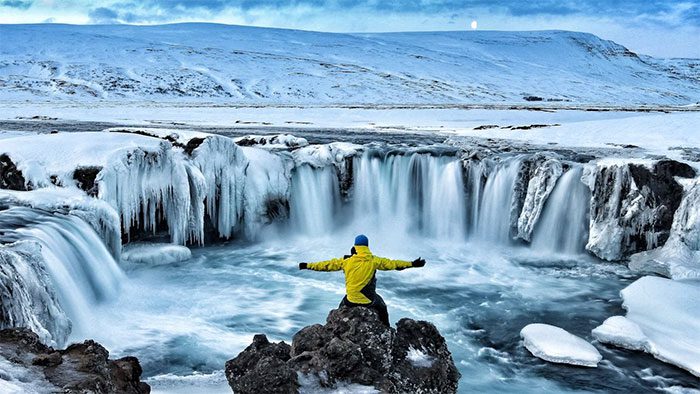This country tops the list of the safest countries in the world in 2023. It is also ranked as the third happiest country globally.
Questions
1. Which country is the safest in the world?
A. Finland
B. Denmark
C. Iceland
D. Singapore

Iceland is the safest country in the world.
2. What is another name for this country?
A. Snow Island
B. Ice Nation
C. Ice Island
D. Ice and Snow
3. What is the population density of this country?
A. 300 people/km²
B. 30 people/km²
C. 3 people/km²
D. 0.3 people/km²
4. Which of the following species cannot survive in this country?
A. Horses
B. Fish
C. Birds
D. Mosquitoes
5. What surname is common among Icelanders?
A. Jones
B. Smith
C. Brown
D. No surname
Answers
Question 1 – Answer C: Iceland. According to the Global Peace Index 2023 published by the Institute for Economics and Peace (IEP) based in Australia, Iceland ranks first among the most peaceful countries in the world. The level of peace is measured across three areas: ongoing domestic and international conflicts; safety and security; and militarization. Following Iceland are Denmark and Ireland.
According to the Institute for Economics and Peace, the world today is significantly less peaceful compared to 2008. Seven out of the ten most peaceful countries in the world are located in Europe. Vietnam ranks 41st out of 163 countries and territories, placing 7th in the Asia-Pacific region.
Question 2 – Answer C: Ice Island. The Republic of Iceland, also known as Ice Island, is an island nation in Europe. Located near the Arctic Circle, Iceland has an extremely cold climate with many glaciers and ice mountains. About 11% of Iceland’s area is covered by permanent ice.
However, this country is situated on the Mid-Atlantic Ridge, which means it also has numerous volcanoes, hot springs, and vast geothermal resources. Thanks to the Gulf Stream current flowing nearby, Iceland’s climate is milder. Aside from the name Ice Island, Iceland is also nicknamed “the land of fire and ice.”
Question 3 – Answer C: 3 people/km². With an area of 103,000 km² and a population of only about 347,000 people, Iceland is one of the countries with the lowest population density in the world, approximately 3 people/km². Due to its sparse population, Icelanders rarely face competition for jobs. As a result, the unemployment rate here is low, and most people are employed.
Question 4 – Answer D: Mosquitoes. Iceland has no mosquitoes, unlike neighboring countries such as Scotland and Denmark. The reason is that there are no shallow ponds here, which prevents mosquitoes from thriving. Furthermore, Iceland experiences three freeze and thaw cycles each year. The rapidly changing climate of this country does not allow mosquitoes to complete their life cycle.
In 1980, biologist Gisli Mar Gislason captured a single mosquito here, which had arrived on a flight from Greenland. Today, this mosquito is preserved in a jar and displayed at the Icelandic Museum of Natural History.
Question 5 – Answer D: No surname. Most Icelanders do not have traditional surnames. People typically name their children following a predetermined formula. This includes the child’s first name and a suffix created from the father’s name with the addition of “sson” for sons and “dóttir” for daughters. Because there are no surnames, Icelandic women do not change their last names upon marriage.


















































